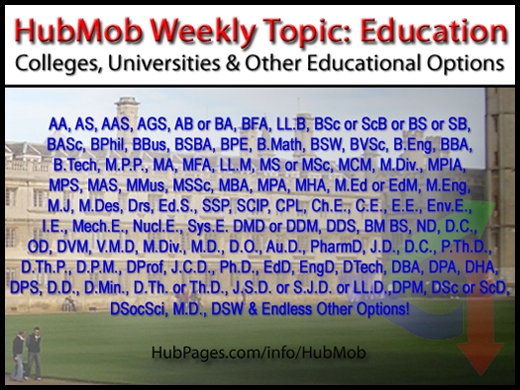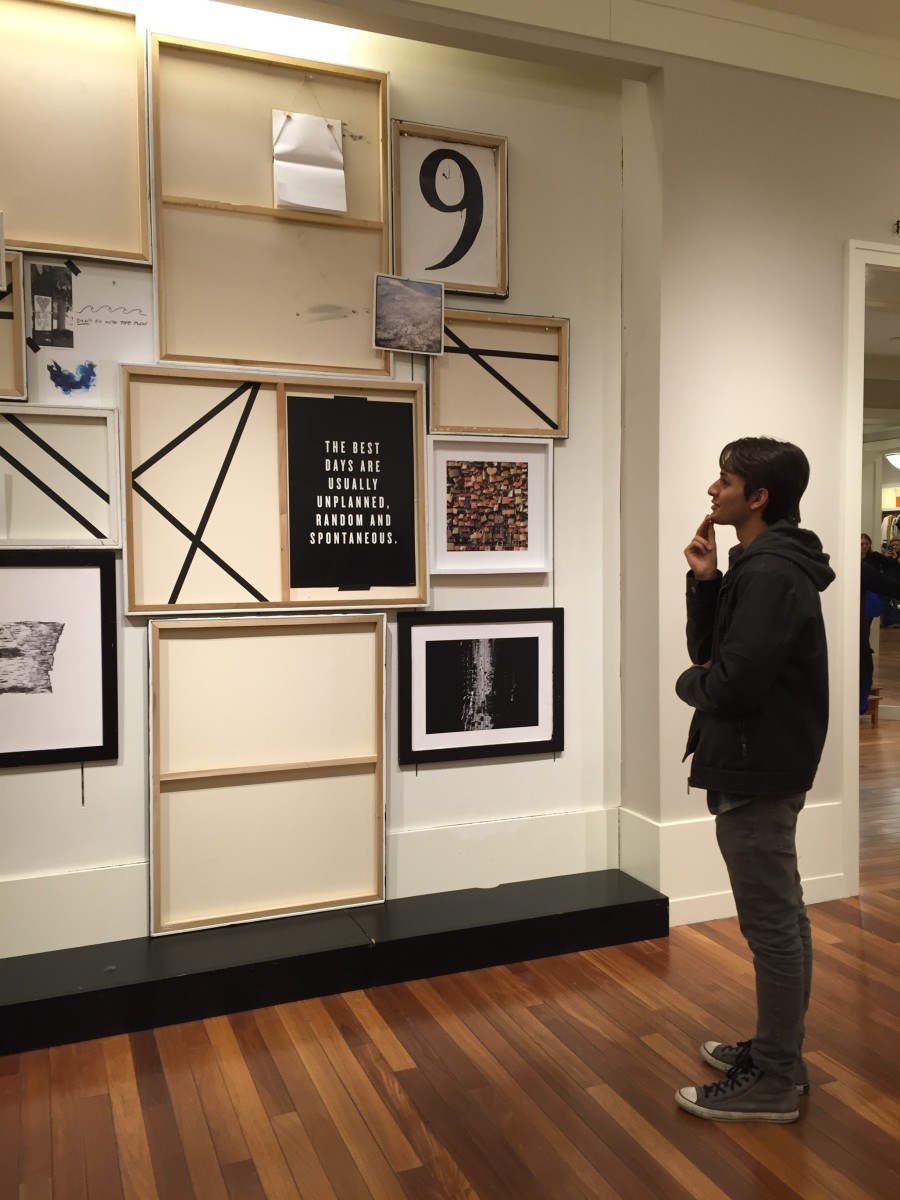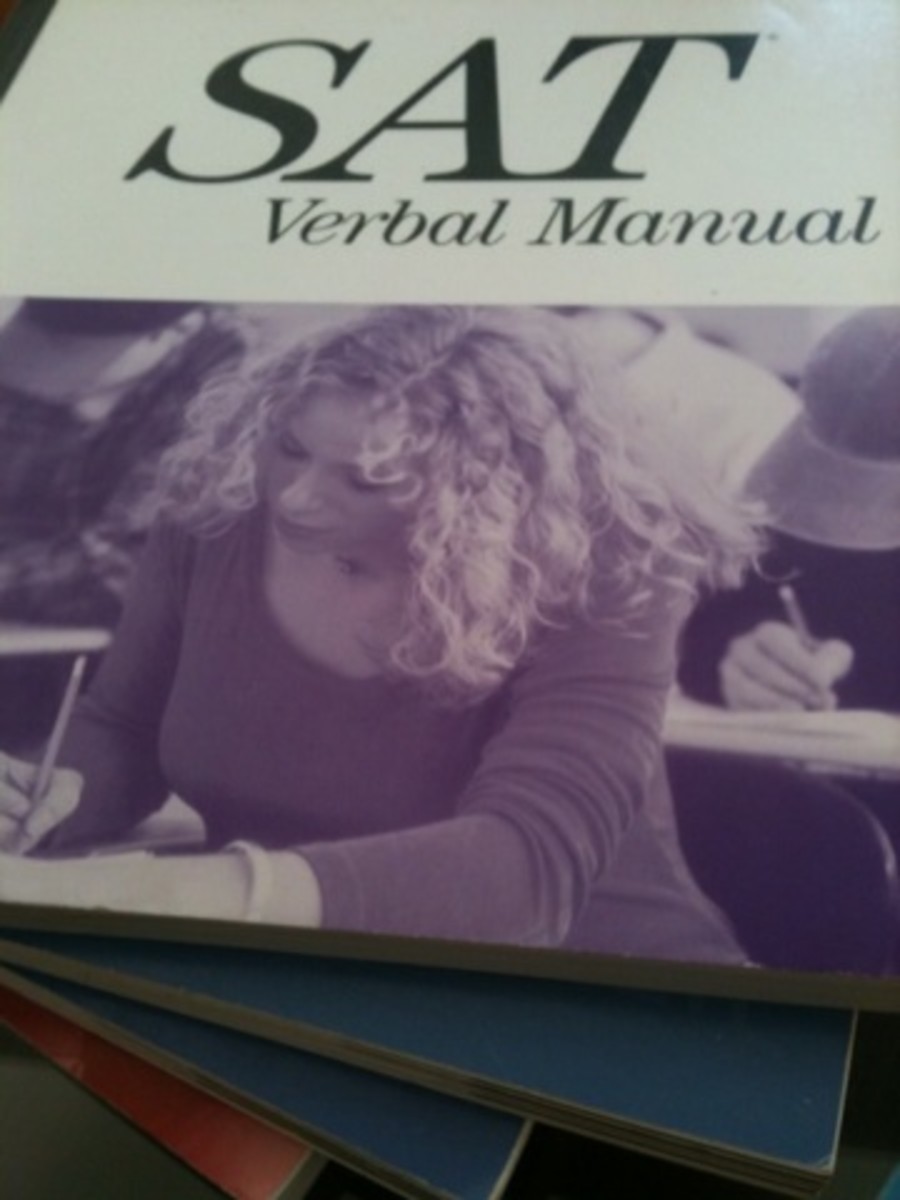How Online Teaching Has Given My Life Back

My Odyssey With The University of Phoenix
I had absolutely no conception how fortunate I was a year ago when I learned that I had been accepted into the training program that led to my employment at the University of Phoenix Axia College online. At the time I applied, I was at a low point in my life - unemployed, separated from my wife, sleeping on my sister's livingroom floor on an air mattress. In short, I had no life, and I was bound and determined to get it back.
So while my sister and her husband were at work during the day, I was using their computer to search for a job anywhere doing anything I was remotely qualified to do. I'm not entirely sure where I found the advertisement that the University of Phoenix Axia College was hiring adjunct instructors to teach Communications 140 - Contemporary Business Communications. Odds are, I found it in the online edition of the Chronicle of Higher Education, but I can't be sure.
My logic in applying for this position was simple - I could do the job from my home, wherever that home ended up being. I didn't need a car, didn't need to worry about gas prices skyrocketing, and it was a job, by virtue of my master's degree in journalism, that I was qualified to do.
The road from the day in early January of 2008 when I applied for that position until I began teaching was long and arduous. At several points in the process, I could have been dropped from the program, but as I passed each level of the assessment and training program, my confidence grew.
I won't go into details about specific information covered in this training, because I suspect there are trade secrets they would not want revealed. Suffice to say, the first step in the process after submitting your application is that the University cross-references your background against their needs, based upon enrollment and staffing needs at that time. So it can never hurt to submit a copy of your curriculum vitae even if they are not advertising for your field. Today that may be the case. Next week, you may fill a need they have.
My first contact with a University of Phoenix staff member was with a Faculty Recruiter. By the time I had heard from her, I had relocated from my sister's floor to sunny Central Florida, as I had three job opportunities spring up. I was scheduled to do a phone interview with this faculty recruiter one hot Florida January day, and as fate would have it, I was so sick I could barely think. I thought for sure that my chances there were doomed, but the recruiter was compassionate and offered to reschedule, to give me a chance to recover from this virus, so they would have the chance to evaluate the real me.
Shortly after that contact, I learned that I had not been successful in any of the interviews that brought me to Florida. And on top of it all, I had been communicating with my wife on a consistent basis, and for some inexplicable reason, she asked me if I would come home to Maine.
I was on the next plane out of Florida and returned to the Great White North in Maine. The first few weeks I was back, I split my time between our home and a shelter in Portland, Maine, because my wife and I still had some issues to work through. On the morning when I received the second telephone call from the Faculty Recruiter, I was actually about to enter the Preble Street Resource Center in Portland to have lunch at the cafeteria downstairs. It was so noisy in that cafeteria that I could barely hear myself think, and actually went out into the hallway and sat down on the stairs.
I wound up missing lunch that day, but it was a lunch worth missing. By the end of the phone interview, I was advised that I was approved to join their training program, and would need to have access to a computer to do this.
I did not share with the recruiter that I was presently semi-homeless and that I had just interviewed for the job in a basement soup kitchen beneath a homeless shelter. Somehow I didn't think that would be a wise move at that juncture.
Training Begins
Being approved for training would prove to be the final hurdle needed for my wife and I to reconcile. Though we still had issues to work through, we both had need for more income. Rather than maintaining separate residences, we decided to share our home that we had leased through the middle of June. It was a winter rental on the ocean in Camp Ellis, Maine, and we had the computer set up on the enclosed front porch, overlooking the ocean. The view was unbelievable!
My children, of course, were tickled pink to have Daddy back home, and I was happy - legitimately happy - for the first time in my memory. For even before my separation from my wife that plunged me into a depression so deep from which I thought I would never emerge, I was already dealing with a variety of mental health issues, stemming from an assault I endured in 2004. I had left teaching in 2006 and applied for disability income, as I grappled with the effects of Post Traumatic Stress Disorder, Depression, Anxiety and this wonderful little condition known as Intermittent Explosive Disorder, an ailment that commonly afflicts people who have suffered severe head trauma. It was one of these periodic explosions that led to our separation, in November of 2007. I am proud to say that I have not had another major explosion since that day, and though I would not say that I am cured, the longer I go without having an episode the more secure I feel that I have overcome that obstacle.
I mention all this as a backdrop to explain my state of mind when I started the Core Training program for the University of Phoenix. I did not know whether I was ready to go back to work or not, but after having been denied three times for social security benefits, I really had no choice.
The Core Training program was basically an introduction to the online classroom environment, showing prospective faculty members where to find various important pieces of information, and teaching us about the educational philosophy of the University of Phoenix online.
The most impressive attribute I have experienced in the year that has passed since I joined the training program is that the trainers and support staff have all been incredibly positive and supportive. At first, I'll admit that I thought they were simply blowing sunshine out my butt, and I kept waiting for the other shoe to drop. So far, that shoe has not dropped. On every level of training, and then my mentorship, I found nothing but the most positive working and learning environment in which I had ever been.
Following the Core Training, I was cleared to enter into the advanced training, which built upon themes that we learned during Core Training. Following Advanced Training, I would have to wait to see if I had made the cut, because the next step in the hiring process was a mentorship.
The Mentorship Experience
During this phase of the hiring process, I was assigned to teach two sections of Com 140, and as far as the students knew, I was their instructor. Behind the scenes, however, I was assigned to an experienced faculty member who had been hired to serve as a mentor to new faculty. Her name was Mary, and if I thought that my previous experiences with the staff and trainers had been positive, I was literally blown away by Mary. She was so dedicated, not only to the University, but to her students and "mentees" like me, and she literally taught me every trick in the book to streamline the process, so I could spend most of my time doing what I like - teaching. Mary made the technology so understandable, and advised me when I had questions about how to handle certain situations that cropped up in the classroom.
Classes at Axia College run for nine weeks, and those first nine weeks seemed to take forever. Every week I was learning something knew, because I had never taken a class in Business Communications as a student. I knew all about the Communications model, interpersonal communications, radio and television operations and journalism, but this was a new experience for me.
By the end of that mentorship, I had established a strong bond with Mary, and also developed a strong rapport with many of my students. During our final discussion week, many of the students expressed how happy they had been to be in my class. They loved my sense of humor, they loved how accessible I was (some of them calling me at midnight, forgetting that it's three hours later on the East Coast than the West Coast) and they valued the feedback I provided on their assignments. This was extremely gratifying, because I was simply doing the job I had been trained to do. In that regard, my admiration for this University grew, because it told me that the training they gave me was more than able to give the students the greatest bang for their educational buck.
Technically, although I was paid for those two classes, the mentorship process was the last step in he hiring process. and it was conceivable that I could have been let go, even at that point. Mary told me it typically took the Academic Affairs mentorship committee a couple weeks to let prospective faculty know whether they were being retained or not.
I received my notification that I had been approved and was welcomed to the ranks as a permanent faculty member after about three days, as I recall. I don't know whether I should read anything into the quick decision, but my ego would like to believe that I had done such an exemplary job that this was a higher education academic version of a slam dunk.
Moving Forward
Whatever the case, I cleared the last hurdle in the hiring process. From there, I was assigned to two more sections of the class, and I found it was much simpler teaching it the second time around. I could have taught four classes, I felt, at that time, but University policy required me to teach four sections (two sets of two) of the class, not including my mentorship, before I would be allowed to teach four classes at the same time.
As I write this, my students are agonizing over their final projects that are due on the last day of class, which is this coming Sunday. My next set of classes begin the day after this set ends, a decision I made by design. Then, in three weeks I will start two more sections, the reason being that by spacing them out, I will not be teaching the same material to the students in all four classes at the same time. Plus, because of the way the University pays us, doing it this way will ensure that I will receive a paycheck every month, which will certainly help the budgeting process!
The money I am earning is excellent to have, but the greatest value I have found in teaching for the University of Phoenix online is that because of the positive mental attitude the faculty, staff and other trainers use, my confidence has returned. It is hard to believe that just a year ago, I was living in homeless shelter, and near the bottom.
I mentioned at the top of this article that I had no idea hoiw lucky I am to have gotten this job when I did. Little did I know that a year later, our national economy would be in a freefall, and hundreds of thousands of hard working people would be out of work. Part of the reason I chose to write this hub is to encourage people who have a master's or Ph. D. degree and would like to have the opportunity to teach online, they can know what the process is like, at least at the University of Phoenix. There is a faculty referral program, where I can submit names of potential faculty to the University, and I will be pleased to do so if anyone has the appropriate experience and degrees.
A year ago, if someone had told me that I would have been hired by the University of Phoenix, teaching four classes for them, and that I would have had one novel completed and a second one nearing completion, I would have thought they were crazy. Yet this is my life today, and I thank God every day that I found that ad somewhere online and began the process to turn my life around.
So if you think you might even be slightly interested in online teaching, drop me a line. You have no idea what a wonderful, uplifting experience this process can be. In my case, it gave me the confidence I was so lacking when I was applying for and being denied for social security benefits. Ironically, now that I am back to work, an Administrative Law Judge ruled that between March of 2006 and July of 2008, I was, in fact, disabled. Today I am no longer disabled, and I have the University of Phoenix to thank for it!








